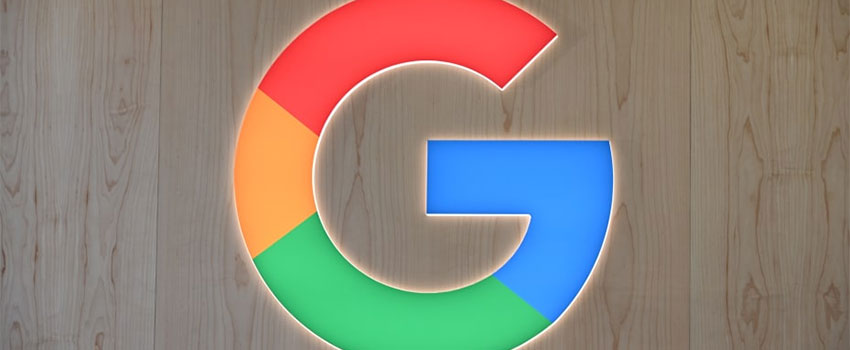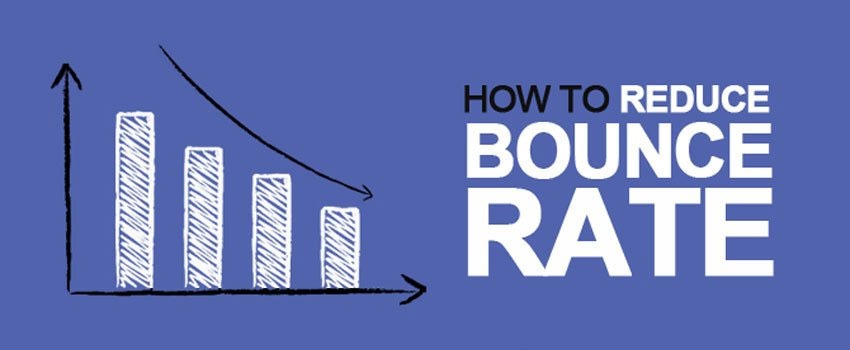Do Google Ads Affect Search Engine Rankings?
There had been some controversy over the effect of Google’s paid ads on search engine rankings, have been raised by a Google employee, Jonathan Rockway. Rockway have acknowledged in a discussion forum.
Deductions from Rockway’s comments suggest that if the social features are relevant, though, then users are getting a better experience. And that’s a good thing, even if individual pages get less traffic from Google.
Instead of being able to SEO the entire Internet, businesses can now only affect the search results for a tiny percentage of users. That’s a good thing because SEO can’t scale, and SEO is good for users or the Internet at large.
Further reading:
Top Nigerian Website Payment Gateways
How to Make Money With Google Adsense
Digital Marketing Tips That Yield Big Results
Benchmarking for Search Engine Ranking
6 Ways to Shield Websites From Security Hacks
More worrisome was Rockway’s comments about ads when he said:
If you look at the Google experience from the standpoint of customers, it’s pretty good. Users get relevant search results and ads. Advertisers get their content on top of everything else. It’s a good compromise between advertising and usability, and it works really well. It’s a bug that you could rank highly in Google without buying ads, and Google is trying to fix the bug. Manipulating Google results shouldn’t be something you feel entitled to be able to do. If you want to rank highly in Google, be relevant for the user currently searching. Engage him in social media or email, provide relevant information about what you’re selling, and, generally, be a good match for what the user wants.
But Google’s official stance is that SEO isn’t bad and the company’s head of Web Spam Team, Matt Cutts did a video on how Google does not see SEO as spam.
Read more posts from our blog:
Benchmarking for Website Performance on Search Engines
Does Ads Really Matter
Jonathan Rockway’s quote highlighted above suggests that ads matter to gain search engine rankings in Google. This position has been supported by many search engine experts whose experience show that paid ads tend to help drive organic search results to a page and support search engine rankings,
Dana Tan, an SEO strategist at iprospect says: PPC, if it’s really well done, can augment your results and could possibly have a residual effect that does benefit your SEO.
Tans position has been supported by Mark Ginsberg, founder and CEO and DriveHill Media who says: the other positive aspect of running PPC ads is that it increases your exposure (both search and display), and leads to a rise in branded searches. Branded searches, like direct traffic, often convert pretty nicely, and helps to send more signals to Google that you’re a brand and should the lovely treatment they often provide to brands. So I do think there are residual benefits to ppc advertising for SEO.
Google says: As always, Google search rankings are completely unrelated to Google’s paid advertising services and other partnerships, and there is absolutely no way for a webmaster to pay money to increase search rankings.
When it comes to SEO, many owners of high-quality sites can and do get their site listed well in Google’s search results without any outside help. Some site owners prefer to have someone else check and optimize their sites, and for these folks we’ve published some guidelines relating to evaluating SEO companies.
This is some relieve as it shows that SEO is still something one can exploit through experience, studies and hard work. Our experience at Todhost shows that ranking is something related to website content and particularly impacted by web page titles.
The Importance of Google Search Engine
Search engines are crucial to every website project. In the month of March 2006 alone, there were 6.4 billion searches. Assuming each user looks at an average of two search results pages, each of which displays 10 search results, that gives an average of 128 billion search results shown to Internet users in a single month. Search Engines are ubiquitous, and so accepted in contemporary world that the word Google now appears in the dictionary as verb (as in to Google something).
Search Engines essentially act as filters for the wealth of information available on the Internet. They allow users to quickly and easily find information that is of genuine interest or value to them, without the need to wade through numerous irrelevant web pages. There is a lot of filtering to do – three years ago in 2004 the number of pages in Google’s index exceeded the number of people of the planet, reaching the staggering figure of over 8 billion. With that much content out there, the Internet would be essentially unworkable without the Search Engines, with Internet users drowning in sea of irrelevant information and less useful marketing messages.
The goal of the Search Engines is to provide users with search results that lead to relevant information on high-quality websites. The operative word here is relevant. To attain and retain market share in online searches, Search Engines need to make sure they deliver results that are relevant to what their users search for. They do this by maintaining databases of web pages, which they develop by using automated programs known as spiders or robots to collect information. The Search Engines use complex algorithms to assess websites and web pages and assign them a ranking for relevant search phrases. These algorithms are jealously guarded and frequently updated. Google looks at over 200 different metrics when assessing websites, including copy, in-bound links, website usability and information architecture.
What this means is that the Search Engines provide users with the information they are looking for, and not necessarily the information that website owners and promoters would like them to see. Type the name of a major brand into Google, and you will most probably be served a wide range of search results that include not only the official website of the brand you searched for, but also other websites, consumer review sites, Blogs, online articles on Web 2.0 sites and press releases on news syndication channels. Of course, not all searches are for brand names. The majority of searches are for non-brand.
There are two major ways to make sure a website appears in a prominent location on the major Search Engines for relevant keyphrases: Paid Search (also known as Pay-Per-Click) and Organic Search Engine Optimization. Of the two, Organic Search Engine Optimization tends to yield the best long-term results and the optimum return on investment, for the simple reason that Internet users are four times as likely to click an Organic search result as they are a Pay-Per-Click ad on the same results page
Search Engines matter because they increasingly determine the information about brands, products and services that customers access online. Being easy to find on Google, Yahoo and MSN is now as much of a marketing necessity as having a strong presence in print and broadcast media, or an effective traditional direct marketing program. And as consumers and organizations come to rely more heavily on them to find the goods, services and suppliers they need, the importance of the Search Engines to modern businesses can only increase
Google’s algorithm searches out Web pages that contain the keywords you used to search, then assigning a rank to each page based several factors, including how many times the keywords appear on the page. Higher ranked pages appear further up in Google’s search engine results page (SERP), meaning that the best links relating to your search query are theoretically the first ones Google lists.
For Web page administrators, being listed prominently on Google can result in a big boost in site traffic and visibility. In 2007, Google surpassed Microsoft as the most visited site on the Web. With that much traffic, getting a good spot on a Google SERP could mean a huge boost in the number of site visitors.
Google’s keyword search function is similar to other search engines. Automated programs called ‘spiders or crawlers travel the Web, moving from link to link and building up an index page that includes certain keywords. Google references this index when a user enters a search query. The search engine lists the pages that contain the same keywords that were in the user’s search terms. Google’s spiders may also have some more advanced functions, such as being able to determine the difference between Web pages with actual content and redirect sites — pages that exist only to redirect traffic to a different Web page.
Keyword placement plays a part in how Google finds sites. Google looks for keywords throughout each Web page, but some sections are more important than others. Including the keyword in the Web page’s title is a good idea, for example. Google also searches for keywords in headings. Headings come in a range of sizes, and keywords in larger headings are more valuable than if they are in smaller headings. Keyword dispersal is also important. Webmasters should avoid overusing keywords, but many people recommend using them regularly throughout a page.
Building Up Your Ranking in the Search Engines – Basic Steps to Take
1. Optimize Your Website for Your Focus Keywords
Begin implementing across your website. Every page on your website needs to include the critical optimization elements that help Google understand what each page is about. Each website page needs to have the following elements addressed with a single focus keyword…
- Page Title (under 70 characters)
- Meta Description (under 155 characters)
- H1 & H2 Title Text (break up main content by describing it)
- Alt Text (every image needs a title)
- Keyword in Content (at least once, bolded)
Hint: Build these optimization points in while remembering that you’re still talking to humans. Make your strategy user-friendly and work your keywords in naturally while being mindful not to over load any page with keywords.
2. Develop an Ongoing Content Strategy
When Google put out their Panda algorithm update in 2011 they put out a message to web builders: Don’t let your site get stale. That meant that sites will be rewarded for continually improving their content, growing the amount and quality of relevant resources. If you want your search engine rankings to improve you better build your site out over time.
Keep it fresh and keep it growing by implementing a sound strategy. Add tools, resources, and informative content to help visitors understand how to use your site to educate themselves and understand their options.
Support your primary pages with layers of supporting content pages. Link these pages to the appropriate primary page to pass additional keyword authority accordingly.
3. Implement a Blog Strategy
To further support your website content strategy you have build a blog on your website. There is an overwhelming amount of data and research to support the benefits of blogging, suffice it to say it’s an enormous aid to search engine strategy.
Every new article you publish counts as a new indexed page on your website and the articles can also be promoted and distributed socially to drive additional traffic to your site.
The key to effective blogging is to build topics and choose a focus keyword for each article. Write about the kinds of things your potential clients are interested in learning about. Don’t be overly promotional about your own products, focus on the industry and solutions in whole.
Remember: Blog articles are meant to be casual and brief, keep them that way. 2000 words should be good for most articles, get to the point, break up your content with bold points and imagery, make it look like nice!
4. Sign Up for Google Authorship
To help your articles get better exposure and display with a higher level of personalization and credibility your next step should be to obtain Authorship status from Google. The process differs depending on your blog platform but the results are the same. Your article will display better on Google, and certainly show up higher in the rankings as engagement improves.
5. Go After Quality Links
Energize your SEO strategy with some quality inbound links. Inbound links are created when other websites link back to your website as a relevant resource in support of their content. Obtaining links from vendor sites, supplier sites, and authoritative industry sites can really boost the relevance of your website on search engines. We have seen this to be the biggest ranking signal for websites.
Guest blog articles are a fantastic application. The idea behind guest posts is that everyone wins. The host site gets a good piece of quality content, it’s readers get yet another piece of information relevant to their interests, and you get to expose yourself to a completely new audience by posting to their blog instead of your own. By including a properly placed hyperlink back to your website you gain the quality inbound link that will drive better search engine rankings.
While Google’s Penguin update punished sites with a poor backlink strategy their Hummingbird update reinforced the value and ranking impact of quality links.
Link Building must be focused on quality links. Target the sites you want to earn links from and contact their webmaster or marketing department to explore the potential.
Conclusion
Search Engine Ranking is the product of hardwork and quality content generation coupled with a proper website structure – design and metadata inclusive. This is not to say that regular content generation is the key to high rankings. The emphasis is on originality, relevance and quality.
Share with friends and let’s have your comments
editor's pick
latest video
news via inbox
Nulla turp dis cursus. Integer liberos euismod pretium faucibua



